Most CRM platforms are designed to support businesses as they grow. However, many CRM solutions cannot scale up in a way that is enough to meet the needs of enterprise users. In fact, there are CRM software solutions that are specifically designed for small and mid-size businesses alone. So, there are popular platforms that can’t really handle the load of having hundreds of customer representatives working simultaneously while handling thousands of customer queries every day. There are, however, specialized CRM business solutions built for large enterprises that can provide the right digital infrastructure, technical support, and comprehensive features that big companies need.
In this article, we are going to look at the five best CRM business solutions for large businesses, their features, integrations, and their starting prices. Also, if you need to take a better look, you can always read our in-depth detailed review of every product below.

Five CRM Business Solutions Table of Contents
In one important survey, 56.55% of financial planning and investment advisory companies revealed that, for them, CRM software is the most valuable software type in 2021. And, this is very understandable. Markets today are becoming more customer-centric. The power has already shifted thanks to the rise of social media and the democratization of brand narratives. In fact, recent customer service statistics have shown that the share of customers in the US who stopped doing business with a company because of poor customer service in 2020 was 40%.
This is because customers do not only want a product or service from a business. To quote economist, Lawrence Abbott, “What people really desire are not products but satisfying experiences.” This he stated in his seminal work Quality and Competition published in 1956. The words ring true then and they still ring true today.
Source: EY, 2020
And, customer sensitivity to the quality of service varies from one product/service category to another. A study found customers are most keen to receive good service while shopping for appliances and technology (66%) the most. This is followed by beauty and cosmetics (57%), apparel (50%), and personal care (50%). These product categories are often dominated by large enterprises. And given the cutthroat competition amongst them, the quality of customer relationship management is one way to get an upper hand.
This is why more and more large companies seek the best CRM platforms that could support the breadth and depth of their operations. What follows are the top software tools that can get the job done.
1. HubSpot CRM

HubSpot CRM has been one of the leading applications in its category for many years now. The complete HubSpot offering is actually a whole business solution suite. And, it is flexible enough to be used by any business of any size in different industries.
The software provider also offers powerful free editions of its modules that rival the premium plans of other providers. This includes its CRM base. Free features include email marketing, live chat, contact management, deal and task management, quotes, ticket creation bots, and reporting. Premium advanced features include tools for video creation, goals, lead generation, programmable automation, workflow extensions, knowledge base, and multiple ticket pipelines.
Furthermore, you can extend the capabilities of your HubSpot platform by integrating them with other business tools. These include WordPress, Base CRM, Microsoft Dynamics, Bigcommerce, Shopify, and many more. Also, it has native applications for both Android and iOS devices. So, you can also empower your mobile teams by providing them access to your CRM platform.
The software provider offers a free trial version and its powerful free edition. Paid plans start at an affordable $50 a month.
Detailed HubSpot Smart CRM Review
2. Pipedrive

Pipedrive is another top sales and CRM integrated platform. It is popular among freelancers and SMEs. It is highly scalable and is also used among enterprise-level businesses across different industries. The product has a free trial available so you can test all of its features firsthand before committing.
Its main features include a sales pipeline view, lead generation tools, workflow automation, scheduler, contact history, and a built-in caller. The platform is also known for its full customizability. Users can also take advantage of its powerful API. And, it also supports multi-language deployment and multi-currency transactions.
Moreover, the product has integrations with over 300 apps. This also includes important ones from Google Apps and Google Maps. The latter allows both agents and managers to connect with each other even when they are away from the office. Together with its robust reporting and analytics tools, the product provides users a 360-degree view of both their CRM and sales operations.
Pricing starts at $12.50 per user per month billed yearly. Also, there is a free trial available. Lastly, you access Pipedrive through its native applications found in both the Play Store and the App Store.
Detailed Pipedrive Review
3. Creatio
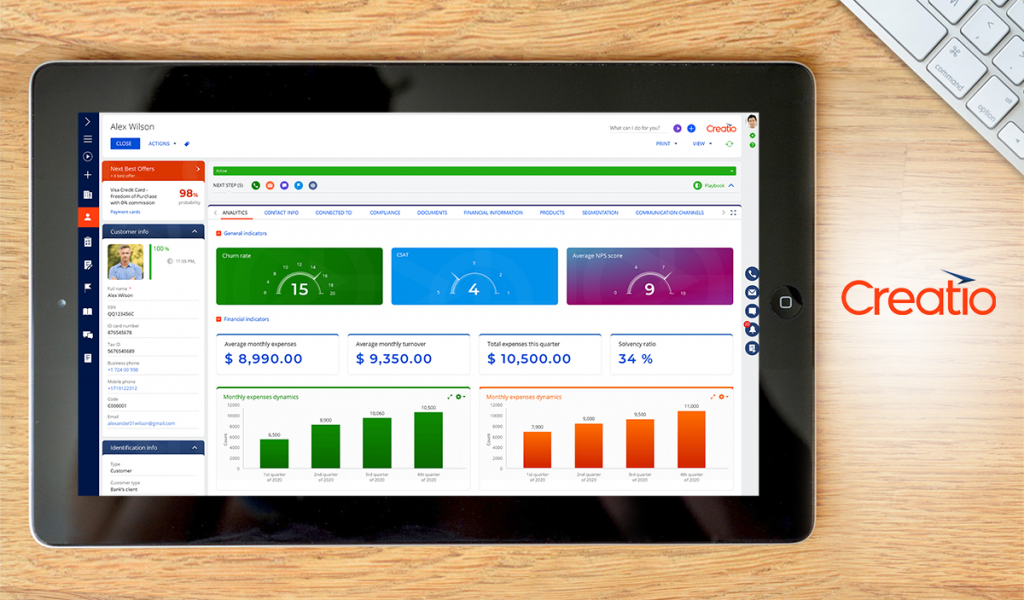
Creatio is a low-code CRM software known for its flexibility and easy customization. What sets it apart is its powerful process automation, which enables businesses to streamline complex workflows without heavy IT involvement. This makes Creatio ideal for mid-sized and large companies across industries like sales, marketing, and service management.
Its key benefits include seamless workflow automation, a user-friendly interface, and the ability to scale as business needs evolve. Creatio’s core features include advanced lead and contact management, omnichannel communication tools, and detailed performance analytics.
Creatio integrates with a variety of tools, including marketing platforms, ERP systems, and communication software, allowing businesses to connect their existing tech stack easily. The platform also offers mobile apps for both iOS and Android, ensuring users can manage tasks on the go.
Creatio operates on a subscription-based pricing model, offering different tiers based on the level of functionality and the number of users. Pricing details are customized according to the company’s specific needs, ensuring flexibility for all business sizes.
Detailed CRM Creatio Review
4. Salesforce CRM
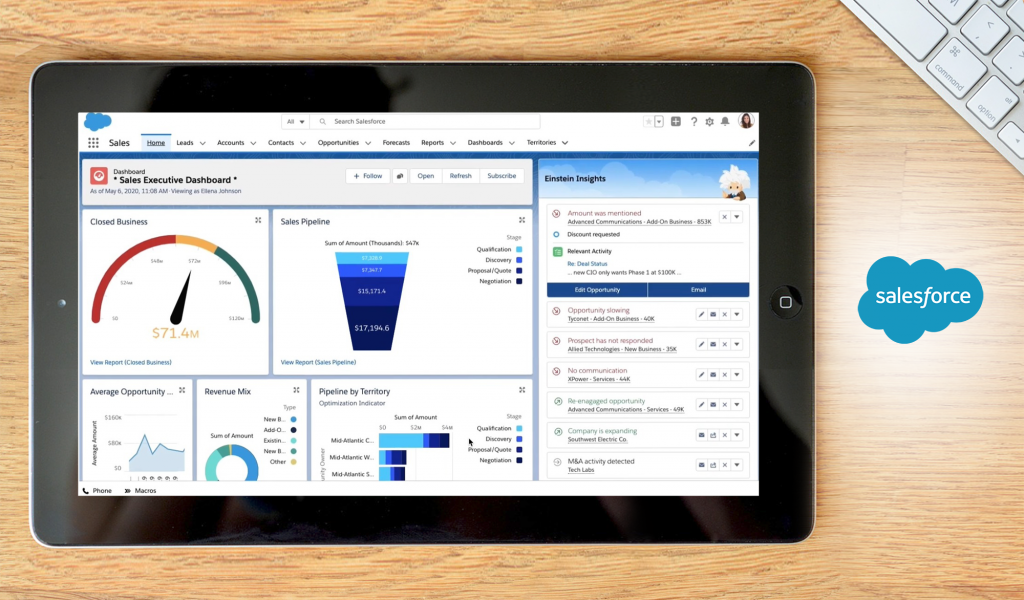
Salesforce CRM is one of the market-leading cloud-based CRM software solutions and is part of the Salesforce suite of business products. The platform helps you track all customer interactions and info in a single location to follow leads effectively. You can utilize its partner management, sales data, marketing automation, and lead management features to nurture leads till they are ready to buy your product.
Your sales teams can use Salesforce CRM to enhance their productivity whether they are working in the office or on location. The vendor offers mobile apps for iOS and Android devices that showcase real-time data from dashboards and custom reports. The apps also provide a Feed First tool that allows you to see crucial info based on your settings. If you want to add more tools and functions, you can get them from the AppExchange app store.
With Salesforce CRM, large enterprises can derive actionable insights from real-time customer data. They can also create territory models, sales forecasts, and vital reports. Plus, you can get more flexibility by integrating this app with popular accounting, sales, and CRM solutions such as Zendesk, Zuora, Ambassador, FinancialForce ERP, LeadExec, TeamSupport, Desk.com, and more. Pricing starts at $25 per user per month billed annually.
Detailed Salesforce CRM Review
5. monday.com CRM
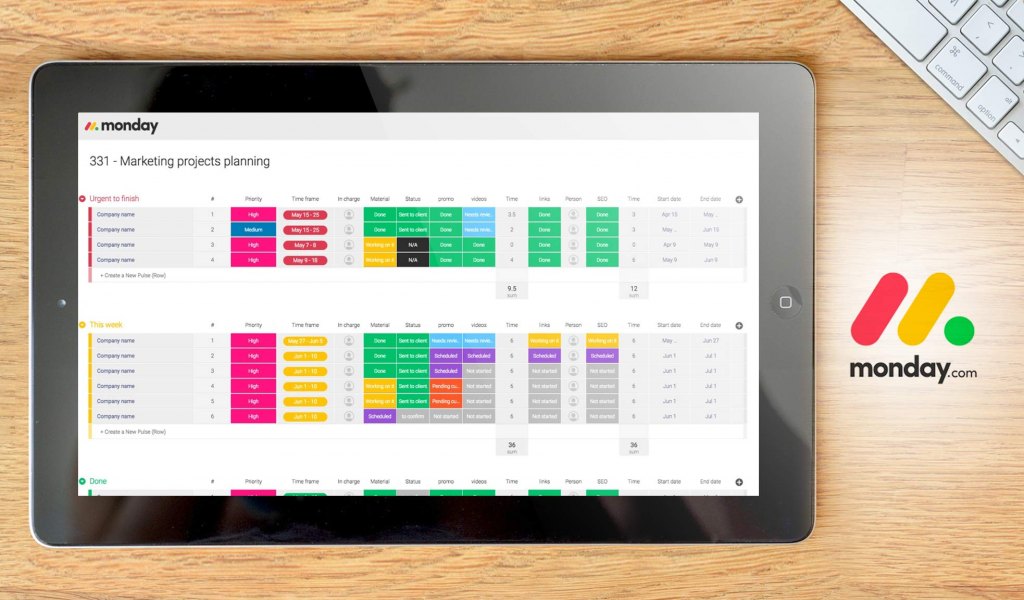
One of the most flexible software tools out there is monday.com CRM. The product is probably one of easiest to customize according to a business needs. It is complete with customizable features for workflows using business rules and if-then logic. Main CRM features include client tracking, deal management, and prospects tracking.
Moreover, it is also prized for its highly-visual layout and comprehensive interactive dashboards. Users do not only get a full view of their business but also a real-time view of their operations. The platform is also accessible via its mobile app for both iOS and Android OS.
The web-based solution is also compatible with other business tools. This includes Slack, Asana, Zapier, and Google Drive among many others. The software developers also offer a free-trial edition so you can try all the comprehensive features that monday.com CRM provides. Pricing starts at $8 per seat a month or $24 billed annually.
Detailed monday.com sales CRM Review
What are the costs associated with enterprise CRM implementation?
Implementing an enterprise CRM can be a significant investment. Costs can vary depending on the CRM system’s complexity and the company’s specific needs. Here’s a breakdown of the main cost factors:
- Licensing Fees: Enterprise CRMs usually require annual or monthly licensing fees, which can depend on the number of users and the plan’s features. Higher-tier plans often provide advanced features but at a greater cost.
- Customization Costs: Tailoring a CRM to fit specific workflows and processes can add to the expense. Customizations may include personalized dashboards, specific integrations, or unique modules designed for the company’s needs.
- Training and Onboarding Expenses: Training employees to use a new CRM system can require additional investment. Costs may include hiring specialists, conducting workshops, or using online training platforms to ensure staff proficiency.
- Data Migration Fees: Transferring data from an old system to a new CRM can involve extra costs, particularly if data cleansing, validation, and mapping are required to ensure accuracy.
- Maintenance and Support Costs: Regular system updates, customer support, and ongoing maintenance can contribute to the total expense. Some CRMs may charge for premium support or additional technical assistance.
Choosing Your Software: Look for the Best Fit
The top CRM solution, in terms of the comprehensiveness of features, is HubSpot CRM. In fact, it is one of the most popular apps that large enterprises use. The product is also the “base” part of the entire HubSpot suite. You can scale up by adding new modules for marketing, sales, and service. It even has a free version and the Enterprise plan starts at a very affordable price (for a large company) at $2,400 per month.
But remember that even if it is the top solution when it comes to features, usability, and scalability, it may not be the best one for your company. There are other things to consider in the selection process, such as company culture, end-user skills, and even employee preferences. Moreover, you should also look at important factors, including the digital literacy of your workforce, their openness to change, the core competencies of your business, and your current operational structure. Given these other things to consider, please realize that even if HubSpot CRM might be the best CRM solution built for large enterprises when it comes to features, it just might not be the best fit for you.
There are businesses that want flexibility and high customizability. So, these organizations might be better off with monday.com. Others that are already NetSuite users would likely be in a better position if they adopt NetSuite CRM with better integrations. If your organization is sales-driven, then maybe Pipedrive or Salesforce may be the best ones for you. The point is, the best one is the best fit. This depends on your company, your vision, and the culture you want to create and foster.
Another very important thing to consider is that the CRM and customer service technology landscape—in terms of technology and practices—is evolving quickly. So, it is best to regularly check whether your software provider is also up to date with CRM software trends and best practices. Make sure that whatever platform you choose, developers do not only help you gain a competitive edge today but are forward-thinking enough to help you navigate through the market of the future.
Key Insights
- Top CRM Solutions for Large Enterprises: HubSpot CRM, Pipedrive, Salesforce CRM, NetSuite CRM, and monday.com CRM are highlighted as top solutions catering to the needs of large enterprises.
- HubSpot CRM: Known for its comprehensive feature set, customization, and scalability, HubSpot CRM integrates with numerous other tools and offers both free and paid plans starting at $50 per month.
- Pipedrive: Popular among SMEs and freelancers, Pipedrive is scalable for enterprise use, offering customizable features and integrations with over 300 apps. Pricing starts at $12.50 per user per month.
- Salesforce CRM: A cloud-based solution offering a unified platform for tracking customer interactions and integrating with various business tools. Pricing starts at $25 per user per month.
- NetSuite CRM: A complete CRM suite offering real-time tracking and reporting with features for managing cases, opportunities, and customer service. Available through a quote-based plan.
- monday.com CRM: Known for its high customizability and visual layout, monday.com CRM supports various business tools and starts at $8 per seat per month.
- Customer-Centric Market: 56.55% of financial planning and investment advisory companies value CRM software the most. High customer service expectations are particularly noted in sectors like appliances, technology, and beauty products.
- Choosing the Best Fit: While HubSpot CRM is top-rated for its features, other factors like company culture, digital literacy, and specific business needs play a crucial role in selecting the best CRM solution.
FAQ
- What makes HubSpot CRM suitable for large enterprises? HubSpot CRM offers a comprehensive set of features, high customizability, and scalability. It integrates with various tools and provides omnichannel support for seamless customer relationship management.
- How does Pipedrive support large-scale operations? Pipedrive is scalable and customizable, with features like sales pipeline view, workflow automation, and lead generation tools. It also integrates with over 300 apps, supporting multi-language deployment and multi-currency transactions.
- What are the key features of Salesforce CRM? Salesforce CRM offers partner management, sales data, marketing automation, lead management, and real-time data visualization. It also integrates with various accounting, sales, and CRM solutions, enhancing its flexibility for large enterprises.
- Why might a company choose NetSuite CRM? NetSuite CRM provides a complete suite for managing client relationships, real-time business tracking, and comprehensive reporting. It integrates with popular business tools and supports self-service transactions through a customer portal.
- What sets monday.com CRM apart from other CRM solutions? monday.com CRM is highly customizable with visual dashboards and interactive features. It supports various business integrations and provides a real-time view of operations, making it suitable for businesses needing flexible workflow management.


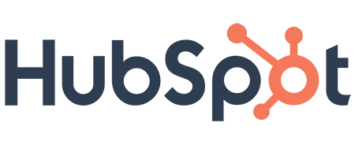

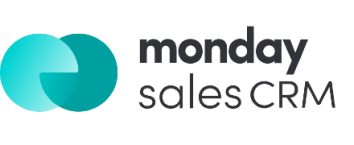











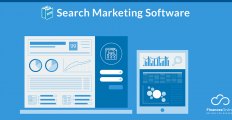











Leave a comment!